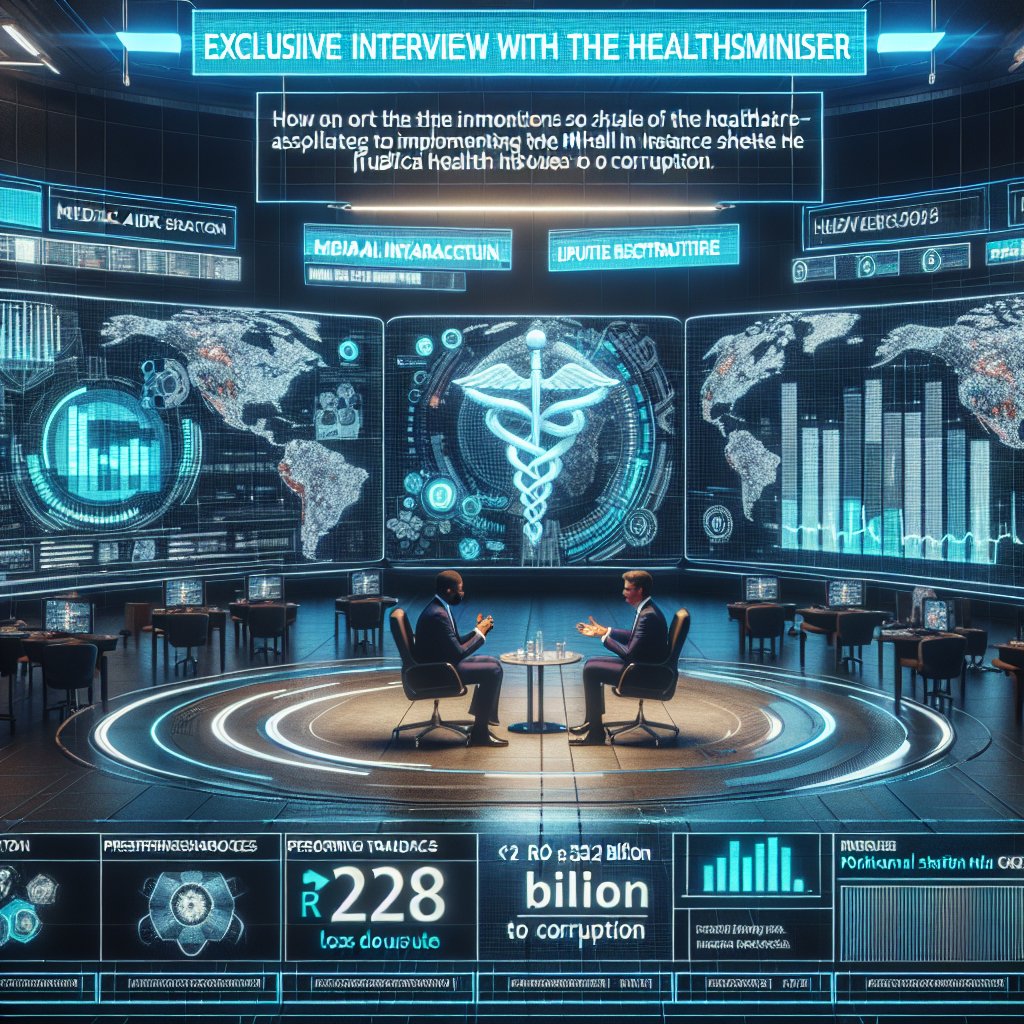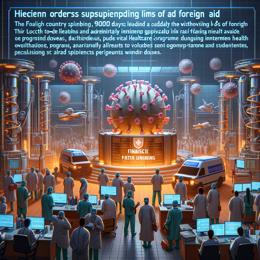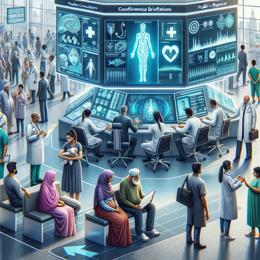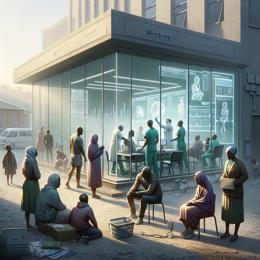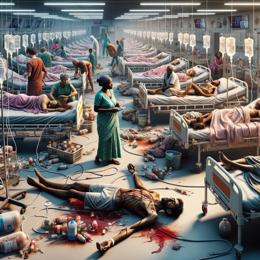Image created by AI
Health Minister Motsoaledi Calls For Resolute Fight Against Private Sector Corruption
In an exclusive interview with "Business Report", following the Department of Health's budget vote, Health Minister Dr. Aaron Motsoaledi has shed light on widespread private sector corruption that has resulted in an estimated R228 billion loss. This troubling revelation came against the backdrop of stringent opposition to the government’s National Health Insurance (NHI) scheme, which critics argue will strain resources already crippled by corruption, mismanagement, and deteriorating infrastructure.
Motsoaledi, in his address to Parliament, argued that while the public sector's woes are widely acknowledged, its private counterpart is equally marred by unethical practices like medical aid fraud, inflating costs on procedures and supplies, and dubious medico-legal claims. These fraudulent activities rob the public healthcare system of funds that could elevate the quality of care for all South Africans, especially the economically disadvantaged.
The Minister reported that preliminary findings from the government-initiated anti-corruption forum and a pending report from the Special Investigating Unit (SIU) are part of a broader initiative to sanitize the healthcare environment, including exposed corrupt practices during the Covid-19 era. Specifically, he pointed to medico-legal litigation as a significant leak of resources, often under the guise of malpractice but embedded in fraudulent activities.
The problem is further compounded by certain habits in private healthcare, like the preference for Caesarean section deliveries for financial gains over patient necessity. Dr. Motsoaledi emphasized that adopting the NHI is a progressive move already underway, with objectives of improving patient record accessibility across the nation, regardless of whether the facilities are public or private, and establishing public-private partnerships, such as one in the Free State.
However, implementing the NHI is fraught with challenges, including possible legal action from various NGOs and a lack of support from the DA, the ANC’s coalition partner. Motsoaledi still stands firm on the necessity of equitable healthcare expenditure, pointing out that although South Africa spends 8.5% of its GDP on healthcare, the current system favours the 14% who have medical aid coverage.
Addressing another pitfall of the system, the health minister underlined that even those with private cover often fall back on the public sector once their funds are depleted, thus perpetuating the inefficiencies. He highlighted the fiscal strain from R70 billion allocated for public servant subsidies and an additional R30 billion in rebates from the South African Revenue Service. These insights raise significant concerns about the sustainability of healthcare financing and the critical need for comprehensive reform to combat corruption and improve services for the entire population.
